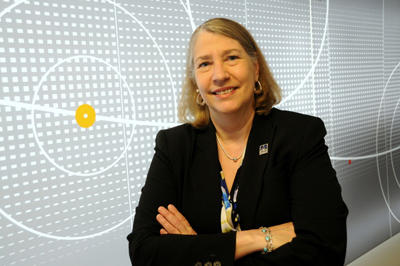Program Spotlight: Dana Farber/Harvard Cancer Center Partnership Receives $8 Million Grant to Start Center for Personalized Cancer Therapy
, by CRCHD Staff
A center designed to train underrepresented students to work in cancer research, as well as conduct translational cancer research focused on personalized cancer treatment, has received $8 million in funds to start-up a Center for Personalized Cancer Therapy (CPCT) at the University of Massachusetts in Boston (UMass Boston).
UMass Boston and Dana Farber/Harvard Cancer Center (DF/HCC) have a U54 Partnership grant with NCI/CRCHD to develop life sciences and CPCT on the UMass Boston campus. Plans for CPCT have been in the works for the past seven years. The $8 million grant toward the project was provided by the Massachusetts Life Sciences Center, the agency charged with implementing the Commonwealth's 10-year, $1-billion investment initiative in the local life sciences industry.
Massachusetts Life Sciences Center president and CEO Susan Windham-Bannister, Ph.D., said "This project will address the long-standing racial, ethnic and economic disparities that exist in cancer care, as well as improve the quality of care for all cancer patients."
NCI/CRCHD principal investigators Holly Prigerson, Ph.D. (DFCI) and Adan Colon-Carmona, Ph.D. (UMass Boston), along with Jill A. Macoska, Ph.D. (UMass Boston) were instrumental in acquiring the funding.
Macoska will serve as the CPCT's first director. She is an Alton J. Brann Distinguished Professor in Science and Mathematics, and Professor of Biological Sciences at UMass Boston. For the past 20 years, her research has focused on elucidating the molecular genetic alterations and dysfunctional intracellular signaling mechanisms that promote prostate pathobiology. Macoska earned her Ph.D. in Biochemistry from the City University of New York in 1988 . In addition, she completed postdoctoral work at Boston's Harvard University in Molecular Genetics and at the Michigan Cancer Foundation in Detroit.
"One of our essential goals is to develop new biomarkers for tumor subtyping and find new cancer drug treatments that bring earlier and more effective responses in patients," said Macoska. Different ethnic groups and genders respond differently to treatment and "we are now reaching out to community hospitals throughout the state to get them to partner with us for biospecimens, particularly for treating the underserved," she said. She added that the CPCT "is fortunate to be a partner in the NCI/CRCHD U54 with DF/HCC."
"Medicine is moving in the direction of customized treatment," said Massachusetts Governor Deval Patrick, "and this investment keeps pace in our efforts to improve patient outcomes and create jobs."
DF/HCC is the largest comprehensive cancer center in the country, bringing together the cancer research efforts of seven Harvard or Harvard-affiliated institutions: Beth Israel Deaconess Medical Center, Brigham and Women's Hospital, Children's Hospital Boston, Dana-Farber Cancer Institute, Harvard Medical School, Harvard School of Public Health, and Massachusetts General Hospital. Funded by a cancer center grant from NCI, DF/HCC has more than 1,000 researchers with a singular goal — to find new and innovative ways to combat cancer
"Located in Dorchester, Boston's largest neighborhood, UMass Boston has a rich and diverse population of underserved students—Black, Hispanic/Latino and Asians who are eager to learn the life sciences," Macoska said. The CPCT provides undergraduate and graduate students with a means to become the next generation of the biomedical work force and future leaders of life sciences research in academia and industry.
Boston is one of the largest life science clusters in the world with some of the nation's top pharmaceutical companies operating in the area, according to Macoska. "As part of our U54 we are partnering with the top pharmaceutical firms to get our students involved in research and discovery through internships, and assisting those students find science industry jobs, whether they are freshmen undergraduates or Ph.D. candidates."
"We prepare our students to study and write successful scientific papers," Macoska added. "We even have grant writing workshops for both post docs and faculty to teach them how to successfully compete and obtain NIH grants."
Learn more about the Center for Personalized Cancer Therapy.
